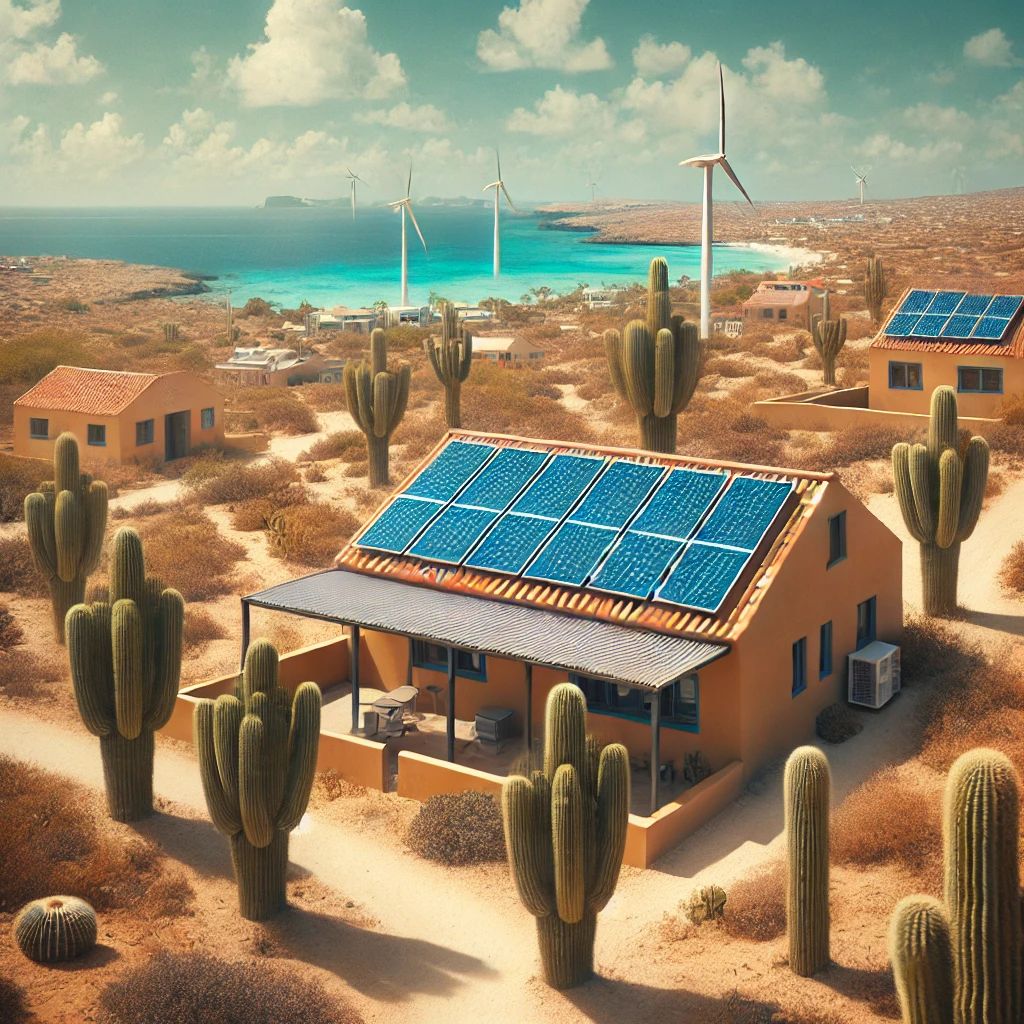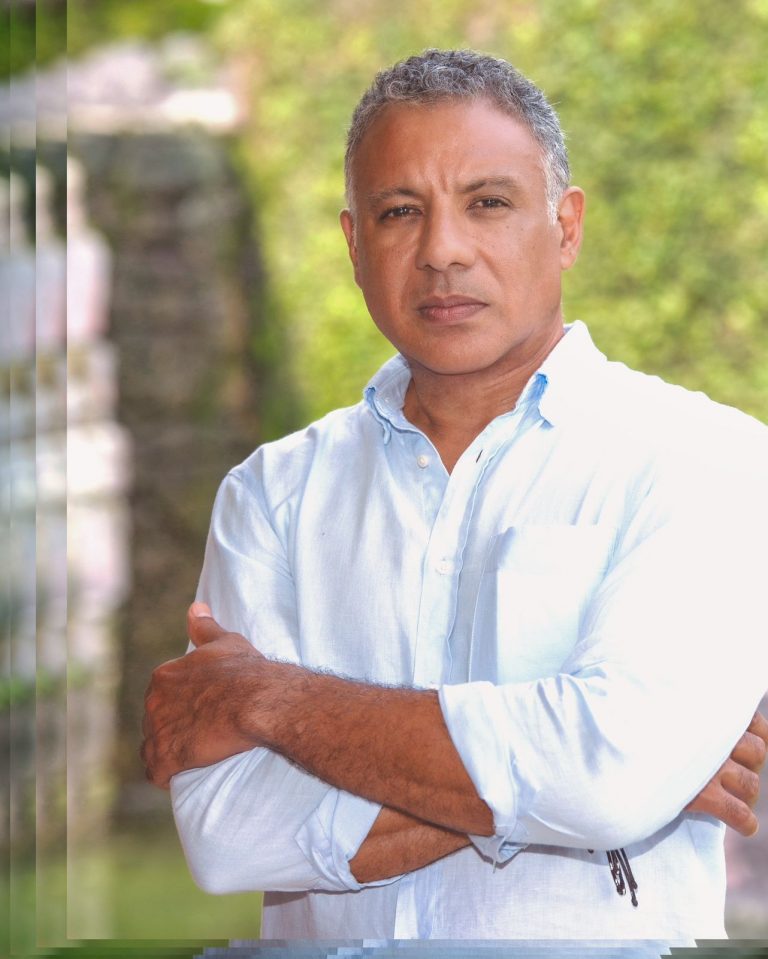Solar Energy in Aruba: Missing the Green Wave
Over a decade ago, Aruba moved toward renewable energy by allowing homes and businesses to install solar panels and connect them to the national grid. Elmar, the island’s utility company, placed a cap—10 kW for residential and 100 kW for commercial installations—to manage growth without overloading the grid. However, the adoption of solar energy in Aruba has been slower than anticipated, and regulatory delays limit the island’s green energy potential.
Reports show that Elmar and the Department of Technical Inspections (DTI) approve only a handful of weekly installations, causing a significant backlog. Some businesses have been waiting over a year for approval after making large investments, tying up capital and delaying their returns. This bureaucratic gridlock hinders Aruba’s transition to renewable energy, discouraging investments in solar power from both residential and commercial sectors.
Missing the Green Wave: How Delayed Solar Growth Impacts Tourism
The slow growth of solar energy is not just an environmental issue; it has far-reaching consequences for Aruba’s economy. Globally, sustainability is becoming essential for both tourism and entertainment. Major artists like Billie Eilish, Coldplay, and Taylor Swift now require venues to meet strict green standards before they perform. Taylor Swift has even gone so far as to issue Sustainability Reports for her concerts, ensuring her performances align with eco-friendly values. Find an example of her impact here.
The Johan Cruijff ArenaA
The Johan Cruijff ArenA in Amsterdam is a shining example of how sustainability can create significant economic benefits. Its investment in solar panels and energy storage has made it a green venue and created a powerful economic spin-off effect. Concert attendees frequently book hotel stays, dine at local restaurants, and use services like Uber before and after events, driving economic activity across the city. This showcases how integrating sustainability into infrastructure can boost environmental and economic outcomes.
Aruba can learn from this. While the island may not need a massive concert venue, it should look to integrate sustainability into its tourism, hotels, housing, wholesale operations, and office buildings. By focusing on green infrastructure, Aruba could attract eco-conscious tourists willing to spend more on services that align with their values.
No stranger
Johan Cruyff is no stranger to Aruba, as his legacy continues to impact the island through the Cruyff Foundation. His influence is felt with the establishment of a Cruyff Court in Pos Chiquito. This court provides a safe space for children to play sports, fostering both physical activity and personal development. The Cruyff Foundation has been active in Aruba since 2005, ensuring that the island’s youth have access to quality sports facilities, in line with Cruyfff’s vision of using sports as a tool to empower communities.
The Cruyff Court Pos Chiquito is part of a larger initiative across the Dutch Caribbean, where similar courts have been set up to offer free access to sports in areas where such opportunities might otherwise be limited. Through these projects, Johan Cruyff’s legacy continues to make a positive difference in Aruba’s communities.
Government’s Decision: Profits or Solar Initiatives?
Aruba’s government is at a crossroads. Should it focus on maximizing revenue from Elmar or solar initiatives that will benefit the island long-term? A promising strategy is peak shaving, where solar energy produced during peak hours can reduce pressure on the grid. Solar systems in homes and businesses can generate electricity during the day, reducing peak demand and allowing Elmar to purchase this excess energy during periods of high consumption.
This model benefits individual solar adopters and could stabilize Aruba’s energy supply without costly infrastructure investments. To make this work, the government must remove bureaucracy and facilitate private initiatives.
Some companies are already ahead. Bucuti & Tara Beach Resort, under the leadership of Ewald Biemans, became the Caribbean’s first carbon-neutral hotel, receiving multiple accolades for its efforts in renewable energy and waste reduction. Similarly, Superfood Aruba has embraced sustainability by investing in solar energy and offering electric vehicle charging stations, showcasing how businesses can drive the island’s green transition.
I had the privilege of working on the first 3+ MW solar parking lot at Aruba’s airport, a project highlighting local initiatives’ potential. My home has also been running on a 10 kW solar system since before the pandemic, demonstrating that individual actions can contribute to Aruba’s renewable energy goals.
These examples show that green infrastructure is not just good for the environment but also a sound economic strategy. Aruba’s hotels, condominiums, and residential projects must follow suit to remain competitive in an increasingly eco-conscious tourism market.
Removing Bureaucratic Barriers to Solar Energy
The delays in approving solar installations must be addressed urgently. The government should simplify the approval process for certified installers and require that once a system is submitted and meets compliance, approval is granted based on the designs and specifications submitted by the accredited installer. Random inspections can still ensure compliance, but they shouldn’t hold back the entire process. Accountability is also critical. If systems are non-compliant, swift penalties must be imposed against either the certified installer or the owner, depending on who the culprit is. This will protect consumers while promoting faster adoption of solar technology. Besides, the smart meter installed by Elmar will measure the maximum pushed back into the grid. if it surpasses the maximum, the smart meter will shut the system down anyway, so Elmar has a safeguard.
Growing Concerns About Smart Meters in Aruba
There is also a growing concern about the smart meters Elmar has been rolling out. Many users report unexplained increases in their electricity bills after installation, sparking questions about whether DTI correctly calibrated these devices before and during their lifespan. Seeing how slow DTI is in approving solar installations, one can even wonder if they ever go out and calibrate the meters at all. In my lifetime, I have never seen them visit any house to perform such checks.
This issue isn’t theoretical; smart meter malfunctions have led to overcharging consumers in other jurisdictions. Is the DTI ensuring regular calibration and accuracy, or is this being neglected, potentially leading to increased revenue for Elmar at the expense of consumers? Aruba must establish robust compliance, quality control, and transparency mechanisms to protect consumers and maintain trust in the island’s energy system. Here, the Aruba Fair Trade Authority (AFTA) clearly has a role. As a monopolist, Elmar is the dominant player. Then again, Elmar is a state-owned entity, and AFTA, as I wrote before, doesn’t seem too keen on being a watchdog for state-owned entities.
The Economic Impact of Delayed Solar Approvals
The slow approval process for solar installations affects environmental goals and has significant economic consequences for businesses. Take, for example, Business X, which invests in a 100 kW solar system at a cost of approximately US$115,000. This system would yield an estimated US$4,300 in monthly savings by reducing electricity costs. However, because of delays from Elmar and DTI, it takes 14 months for the system to be activated.
These 14 months of delays cause US$60,200 in lost savings or unnecessary expenses (14 months x US$4,300/month). This means the business now faces an extra US$60,200 in costs on top of the initial investment, turning what should have been a sustainable investment into a financial strain. Instead of generating immediate returns, the capital invested in solar becomes “dead capital”—funds tied up without producing any return on investment (RoI).
This discourages other business owners from investing in solar energy, as bureaucratic delays erode the economic benefits. The potential for savings is negated by the extraordinary extra costs incurred due to the slow approval process, making what should be an economically sound decision a burdensome one.
Liability
Elmar and DTI could be held legally liable for these losses. Businesses make significant financial commitments with the expectation that the regulatory process will be efficient and timely. When these entities fail to act within a reasonable time frame, resulting in substantial economic harm, they should be held accountable for the damages caused. These delays discourage solar investment and harm Aruba’s broader sustainability goals.
Conclusion: Time for Action
Aruba stands at a critical juncture. The island must either continue down a path of bureaucratic inefficiency or embrace a future powered by renewable energy. The global shift toward eco-conscious tourism is clear, and Aruba must act now to keep pace.
Streamlining the solar energy approval process is the first and most crucial step. Encouraging more businesses and homeowners to invest in solar will help Aruba reach its renewable energy goals and attract eco-conscious tourists. Aruba has the potential to be a leader in green energy and sustainable tourism, but decisive action is required today.
Let’s make sure Aruba doesn’t miss this opportunity and optimize the fruits we can harvest from our bright and shining sun.
See you next week, and don’t forget to visit lincolngomez.com for more columns and podcasts on Aruba’s future.


















